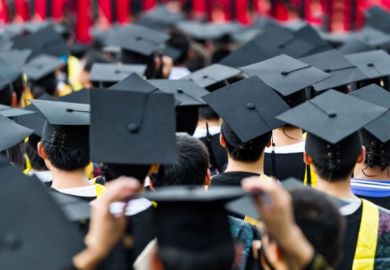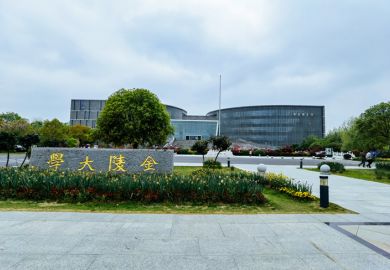Universities can no longer exist in an “ivory tower” but must instead partner with industry to produce students “aligned with workforce demand”, the former director general of Malaysia’s Ministry of Higher Education has said, amid high graduate unemployment in countries including India and China.
Speaking at Times Higher Education’s Asia Universities Summit, Asma Ismail told delegates that there was “increasing demand for education that emphasises…practical skills, hands-on experience and…real-world applications”.
She added that, since the pandemic, universities faced increased competition because the combination of artificial intelligence (AI) and new digital platforms had led to the rise of “commoditised online courses from non-traditional education providers”.
“We are no longer the only education providers,” she said. “That means…for the universities, competition is going to be stiff.
“Universities must embrace change in how they are structured, how they operate and how they teach the future learners,” Professor Ismail said, advocating for a shift to teaching that did not just focus on knowledge transfer, but helped students to develop critical skills for the future, such as resilience and entrepreneurship.
Similarly, Lily Kong, president of Singapore Management University, argued that the adaptation of teaching methods in response to emerging technologies should be prioritised over curriculum reform.
“Universities are not entirely fit for purpose in our current shape and form,” Professor Kong told the event, held in Kuala Lumpur in partnership with Sunway University. “Our pedagogical thinking needs to shift in the digital age.”
As students have access to “huge amounts” of information online, including virtual courses, instead of simply curating resources or telling students to look for themselves, university leaders and teachers must encourage students to reflect “on the journey of the search” and what it was telling them about themselves.
“The facilitation of such self-reflective learning presents an enhanced opportunity in the digital age for students to cultivate both independence and critical discernment,” Professor Kong said.
Also at the event, Tieniu Tan, chair of the university council at Nanjing University, discussed how the institution was embracing emerging technologies and embedding them into learning, including by introducing a compulsory AI module for all students.
He added that, as a research-intensive university, the institution was prioritising closer collaboration with businesses, including establishing research centres hosted by industry, and employing PhD supervisors from companies to help students cope with “the learning curve” when they started work.
All three speakers emphasised that, in an age of increased uncertainty and misinformation, universities must prioritise developing students who are committed to serving their societies. At Nanjing, Professor Tan explained, students received two transcripts – one for academic performance and one for their “integrity”, which measures their soft skills.
“The most important soft skill is virtue,” said Professor Tan. “I believe students with virtue and talent are [a] quality product…Students with talent and no virtue [are] a poisonous product.”
Register to continue
Why register?
- Registration is free and only takes a moment
- Once registered, you can read 3 articles a month
- Sign up for our newsletter
Subscribe
Or subscribe for unlimited access to:
- Unlimited access to news, views, insights & reviews
- Digital editions
- Digital access to THE’s university and college rankings analysis
Already registered or a current subscriber?








